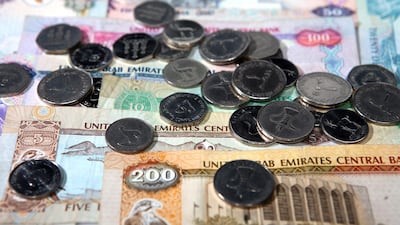My father has been working for a mainland Abu Dhabi company for more than 30 years. He doesn't want to resign but he fears the company will shut down due to unforeseen circumstances and, in that situation, he would lose all his gratuity.
Can you please help to guide us regarding this issue? Is there any way around it? ES, Abu Dhabi
A situation like this is as much a legal issue as it is one for the Ministry of Human Resources and Emiratisation, so I sought expert comment from Thenji Moyo, legal director and head of employment for Gateley UK in Dubai.
“ES’s father will have a statutory right to claim his end of service upon termination of employment and even if the company is wound down, he will have a valid claim against the company, which will include the payment of his gratuity,” Ms Moyo says.
________
Watch: new UAE labour laws come into effect
“If the company was wound down due to insolvency/bankruptcy, a liquidator would be appointed to distribute the assets as all employees will be considered preferential creditors,” she says.
“In such circumstances, it would be advisable for the employee to file a labour complaint in the courts in order to obtain a judgment to enforce against the assets of the company. It is also worth noting that an employee’s entitlement to gratuity is capped at two years’ annual wages and it is likely that on account of his length of service he has reached the statutory cap and is no longer accruing gratuity.”
I want to clarify the last point, as it is something that not everyone is aware of, particularly as few people stay with an employer for this length of time.
The topic is covered in Article 51 of the new labour law, clause 6, which states: “The end-of-service benefits for the foreign worker in its entirety does not exceed two years’ wage.”
An employer can decide to pay more than this amount but is not obliged to do so under UAE law.
I own a property in Dubai and when I left the country two years ago, I closed my bank account.
A family member was living in the property but now I am going to let it to a tenant.
How can a non-resident encash the cheques a tenant uses to pay rent if they do not have an account in the UAE? Is there a provision to open any kind of bank account for this purpose? HM, Sweden
The general requirement for UAE banks is that a person needs to present their Emirates ID, something that is issued to all residents, when applying to open an account.
However, there are a number of banks that will allow non-residents to open a basic account with them.
These would be very simple accounts without any option for credit and usually no chequebook, but which provide online banking services and an ATM card.
This would allow a property owner to deposit cheques in dirhams.
A complication in this case is that the person must be present to open an account as a non-resident, as per UAE Central Bank guidelines.
The usual proofs of identity and address are required for anti-money laundering checks, together with several months’ worth of statements for the person’s main account in their home country.
The exact requirement and minimum balances will vary between banks, so anyone wanting to open such an account will need to check the specific requirements.
If HM is not visiting the UAE, an easier option would be to have the tenant make the rental payments by bank transfer to an account outside of the UAE, although this is likely to be subject to some fees and exchange rate charges.
I have two contracts of employment. One is from my employer that refers to my salary and other benefits, with part of my salary paid to an account outside of the country. I also have a formal one in English and Arabic.
When it comes to calculating my end of service, which one is used as the local one shows a much lower basic salary? TO, Dubai
__________
Listen: why the unemployment pay initiative is a vital safety net
In all cases of a dispute, the contract that is considered by the ministry is the official one that is lodged with it when applying for a residency visa and work permit.
It is the basic salary shown in this contract that is used to calculate a gratuity.
If a worker has had a pay rise and their basic salary is higher than shown on the original contract, documents from the employer to this effect can be used, as it is not essential to update the contract on the ministry's database, although it is good practice to do this at the time of visa renewal.
Keren Bobker is an independent financial adviser and senior partner with Holborn Assets in Dubai, with more than 25 years’ experience. Contact her at keren@holbornassets.com. Follow her on Twitter at @FinancialUAE
The advice provided in our columns does not constitute legal advice and is provided for information only


